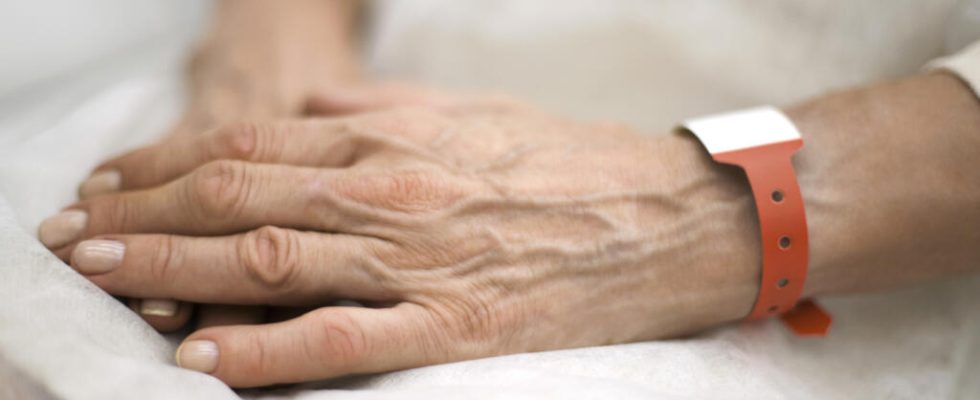French President Emmanuel Macron announced on Sunday March 10 that a bill on “assisted dying” will be presented to the Council of Ministers in April. But what distinguishes it from euthanasia or assisted suicide? RFI takes stock.
4 mins
After long months of waiting, the French president Emmanuel Macron revealed on Sunday in an interview daily Release And The cross the contours of the future French model on end of life “. The text, which must be presented in April to the Council of Ministers, will be examined from May 27 in the National Assembly.
This support towards the end of life will only be possible under several conditions. It will be reserved for adults, capable of discernment. full and complete “. People suffering from psychiatric or neurodegenerative illnesses which impair discernment, such as Alzheimer’s, are therefore excluded. They must also be suffering from an incurable illness, with a life-threatening prognosis in the short or medium term, and suffering that is impossible to relieve.
“ The term we have chosen is that of assisted dying, because it is simple and human and it clearly defines what it is about. », argues the Head of State, for whom the choice made is neither that of euthanasia nor that of assisted suicide. “A deception,” denounces the president of the Conference of Bishops of France. In an interview with The crossMgr Eric de Moulins-Beaufort criticizes a text “ which opens up both assisted suicide and euthanasia “.
What reality do these different terms cover? Decryption.
Euthanasia: The National Consultative Ethics Committee (CCNE) defines it as a “ act intended to deliberately end the life of a person suffering from a serious and incurable illness, at their request, in order to put an end to a situation that they consider unbearable “. This therefore requires the intervention of a third party who carries out the fatal gesture.
In Europe, the Netherlands was the first country to legalize euthanasia in 2001. Belgium followed suit the following year. Euthanasia is today authorized in five European countries: Benelux, Spain and Portugal.
Assisted suicide: Unlike euthanasia, it is the person themselves who carries out the procedure. “ Assisted suicide consists of giving a person the means to commit suicide themselves. In this case, the person commits suicide themselves by absorbing a lethal product which has previously been delivered to them. », Indicates the CCNE.
In Europe, assisted suicide has been legalized in Switzerland since 1942. It is also authorized in the Netherlands, Luxembourg and Austria since a law came into force on January 1, 2022.
Assisted dying: This is therefore the term used by Emmanuel Macron. A vague term which, according to former MP Jean Leonetti, co-author of the Claeys-Leonetti law on the end of life in 2016, “ can be interpreted as assisted suicide, euthanasia or the development of palliative care “.
According to the bill unveiled by Emmanuel Macron in his interview with Release And The crossthe administration of the lethal substance will be carried out by the person himself or, if he is physically incapable, by a volunteer or by the doctor or nurse who accompanies him.
Deep and continuous sedation: It consists of permanently putting to sleep incurable patients who wish to do so, if their vital prognosis is compromised. short term » by their illness or their decision to stop treatment. To do this, the patient is injected with midazolam intravenously. With the simultaneous cessation of hydration and nutrition, specialists estimate that death occurs around a week.
This is currently the only legal way to bring the patient towards the end of life in France. It is permitted by the Claeys-Leonetti law, which regulates the end of life of incurable patients. This law provides for the cessation of treatments in the event of “ unreasonable obstinacy » (or therapeutic relentlessness): if the patient wishes, the treatments can be “ hanging » when they “ appear useless, disproportionate or when they have no other effect than the sole artificial maintenance of life “. If the patient cannot express his wishes, the decision must be taken by the doctors in a “ collegiate “.
Read alsoA Brief History of Euthanasia and Assisted Suicide Since Antiquity
